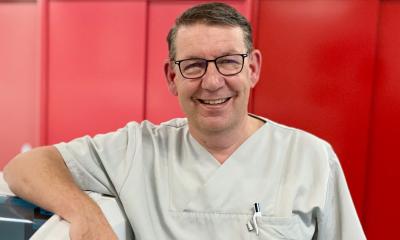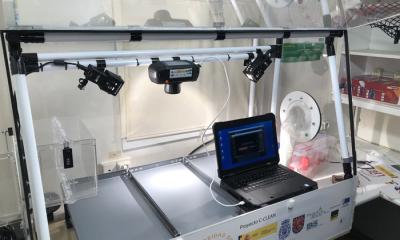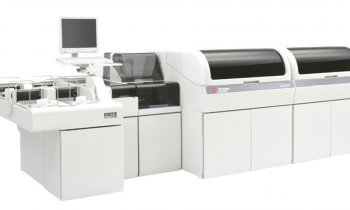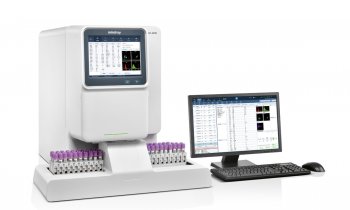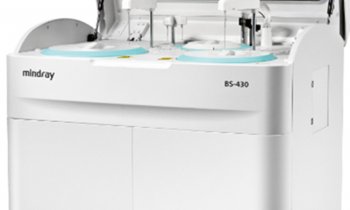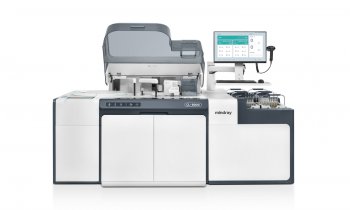testing Ebola
New mobile lab case sees action in Guinea
Dr Ahmed Abd El Wahed, research associate in the Department of Infection Models at the German Primate Centre (DPZ) in Göttingen, has developed a portable laboratory for fast diagnosis of Ebola. The new procedure is six to ten times faster than the one currently used, and equally sensitive.
Report: Anja Behringer

No electricity, no reliable cold chain, no working equipment – scientists needing to diagnose and combat Ebola virus disease in West African field laboratories often work under extremely difficult conditions. To relieve them the Göttingen infection researcher has developed a diagnosis kit case that runs on solar power and works with reagents that do not need refrigeration, and the case also contains all necessary reagents and equipment to detect Ebola on site within just 15 minutes.
Dr Abd El Wahed put together five of these cases for testing in several Ebola treatment centres in Guinea. At the end of January, the cases were initially assessed for their technical suitability in field trials, together with project partners from the Institute Pasteur Dakar, Guinea’s National Institute of Public, the University of Stirling, the Robert-Koch-Institute and TwistDx Ltd.
The diagnosis case can also be used to detect Ebola at airports and in quarantine units. It facilitates the analysis of samples with Recombinase Polymerase Amplification (RPA) Technology developed by the British company TwistDX Ltd., a subsidiary of Alere Inc.
Manfred Weidmann and Frank Hufert, Head of the former Department for Virology at Göttingen University Medical Faculty, optimised the system further to detect Ebola. RPA is just as sensitive as the current polymerase chain reaction (PCR) test, but much faster and it works with a stable temperature so that none of the repeated heating needed for the PCR is necessary. Furthermore, the components of the RPA tests can be used and transported at ambient temperatures, making them independent of cold chains, which are impossible to produce in remote areas.
Ahmed Abd El Wahed, who is overseeing testing in Africa, explains: ‘Laboratories put up in tents take between several hours and a day to be constructed, and the test itself takes three to four hours, at a temperature which cannot be higher than 20 degrees C, because the reagents will otherwise be unusable. My laboratory in a case is ready to be used within two hours and the test only takes 15 minutes. ‘The dry chemicals we use are stable for up to three months at a maximum temperature of 38 degrees C.’
This portable lab has been utilised in Guinea since the beginning of February this year.
PROFILE:
Currently a scientist at the Unit of Infections Models, in the German primate centre (DPZ), Göttingen, Ahmed Abd El Wahed studied veterinary medicine from 1997-2002 at Mansoura University, Egypt, and gained his PhD in biology from Göttingen University, Germany, in 2011. From 2011 to late 2014 Dr Wahed worked at the Institute of Virology, University Medical Centre, Göttingen and had been guest scientist at the German primate centre. His interest lies in the development of novel point-of-care diagnosis.
23.03.2015




